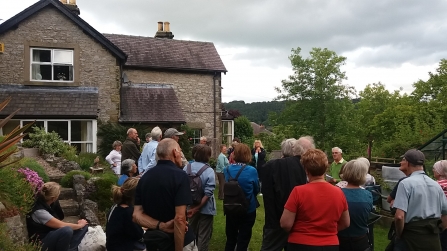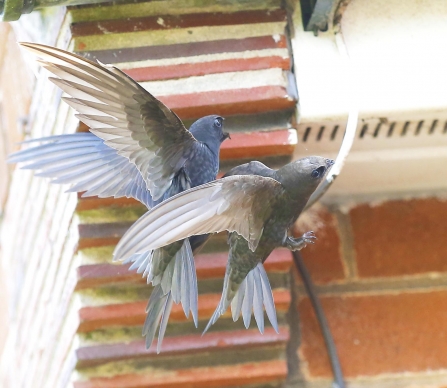
Swift Awareness Week, Bakewell

Swift Awareness Week, Bakewell
In Derbyshire, there were five awareness events, attracting over 160 people.
Nick Brown, who runs the Derbyshire Swift Conservation Project and who’s idea Swift Awareness Week was, said: “Swifts spend most of their lives flying endlessly over Africa, only returning to Europe for three months in the summer to raise their young.
They hoover up millions of tiny spiders and insects such as midges and aphids flying high in the air and they only come to earth when they have to lay their eggs.
They find tiny holes in older properties, usually either under the eaves or under roof tiles, and squeeze in to any dark space to make the nests and lay their eggs.
When houses have new soffits or a new roof, these holes are accidentally blocked up and the birds find themselves homeless.
And new buildings are so hermetically sealed there’s no way a swift could get in to breed.”

Swifts by David Naylor
"“Swifts spend most of their lives flying endlessly over Africa, only returning to Europe for three months in the summer to raise their young."
He added:
“Fortunately this iconic bird, whose crazy flights low over our roofs in summer demand our attention, has many supporters. There are over 60 local Swift Groups now across the UK and each one works to help this bird by putting up nest boxes, raising its profile locally and trying to get councils, developers and builders to incorporate nest boxes in new housing”.